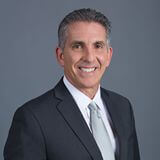 Our thanks to author Steve Piacente for this guest post!
Our thanks to author Steve Piacente for this guest post!
How great is it when you pitch a print reporter and he bites?
Free publicity for most self-published authors is as rare as a budget deal in Washington, so when it comes along, you want to take full advantage.
That doesn’t mean being a self-promoting blowhard, but it does, or should, mean walking in as prepared as possible. Have a game plan. Envision the headline you want, and work toward it (diplomatically) throughout the interview.
I met with a style section reporter recently, and even though I spent 25 years as a daily print journalist, I could have done better. Here’s why, along with some tips on how to improve for next time.
Problem: The reporter was smart and engaging, but the questions and theme of the interview were unfocused.
Solution: Walk in with three core messages. Discuss whatever he wants, but do it quickly and pivot to your key points. As in, Yes, the shutdown is a mess, kind of like the political standoff that takes place in my second novel.
Problem: I’ve written two books, but the interviewer wasn’t able to finish either.
Solution: Arrive with a branded one-pager that succinctly describes you and your novels. Include bulleted summaries of your plots, main characters, and key takeaways for readers. Refer to the cheat sheet (it’s for him, not you), and then give it to the interviewer. This will nearly eliminate the chance of factual errors.
Problem: Print interviews get chatty, which translates into a lot of paraphrasing and partial quotes in the eventual story.
Solution: Remember you’re speaking through as well as to the reporter. Your real goal is to reach readers. To make an impression, you need quotes and ideas that are lively and appealing. Commit a few sound bites to memory and find a way to use them during the interview. Don’t be afraid to repeat. You can also use verbal flags to signal the importance of your remark. As in, The message I really want to send to readers is this: (then use your sound bite).
Problem: Things start off great but begin to stall midway through.
Solution: A strong beginning, middle and end are just as important in a print interview as when appearing on TV. Maintain your energy and enthusiasm throughout, and project confidence with strong, positive body language. Most print reporters will try to capture the tenor of an interview, so stay upbeat from start to finish.
More tips to improve a print interview:
– Don’t forget the interview doesn’t end with the last question. It ends when you or the reporter drive away. Any crack you make after he shuts the recorder could still wind up in print or online.
– Stash a strong closing line that repeats your main point in case he asks if there’s anything else you’d like to mention. Of course you do!
– Your preparation should include reading a few of the reporter’s recent articles. It doesn’t hurt to mention one and perhaps drop a compliment. No matter what you’ve heard, reporters are like the rest of us and will appreciate a little love.
Have an interview story or tip to share? Please do with your comment below!
 Author Steve Piacente (@wordsprof) has been a professional writer since graduating from American University in 1976. In 2010, he self-published Bella, the story of a widow’s quest to uncover the truth about her husband’s death on an Afghan battlefield. Bootlicker, a prequel focused on a dark secret that imperils a historic election, came out in late 2012. Steve started as a sportswriter at the Naples Daily News, switched to news at the Lakeland Ledger, and returned to D.C. in 1985 as Correspondent for the Tampa Tribune. In 1989, the native New Yorker moved to the same position for the Charleston (SC) Post & Courier. He is now creative director at The Communication Center in Washington, D.C., and teaches journalism classes at American University. Previously he served as deputy communications director at a federal agency in Washington, D.C. Contact Steve at steve@getbella.com. His novels are available at www.stevepiacente.com
Author Steve Piacente (@wordsprof) has been a professional writer since graduating from American University in 1976. In 2010, he self-published Bella, the story of a widow’s quest to uncover the truth about her husband’s death on an Afghan battlefield. Bootlicker, a prequel focused on a dark secret that imperils a historic election, came out in late 2012. Steve started as a sportswriter at the Naples Daily News, switched to news at the Lakeland Ledger, and returned to D.C. in 1985 as Correspondent for the Tampa Tribune. In 1989, the native New Yorker moved to the same position for the Charleston (SC) Post & Courier. He is now creative director at The Communication Center in Washington, D.C., and teaches journalism classes at American University. Previously he served as deputy communications director at a federal agency in Washington, D.C. Contact Steve at steve@getbella.com. His novels are available at www.stevepiacente.com

These are some great tips, you only get one shot at these things and knowing exactly how to pose questions can mean the difference between getting something and nothing. Thanks for sharing!
You’re welcome Tyler, and yes, the old cliche is true: you only get one chance to make a first impression..
Thanks for the chance to appear here again, Shari. If anyone has other tips to improve the odds of a great print interview, I’d love to hear them!